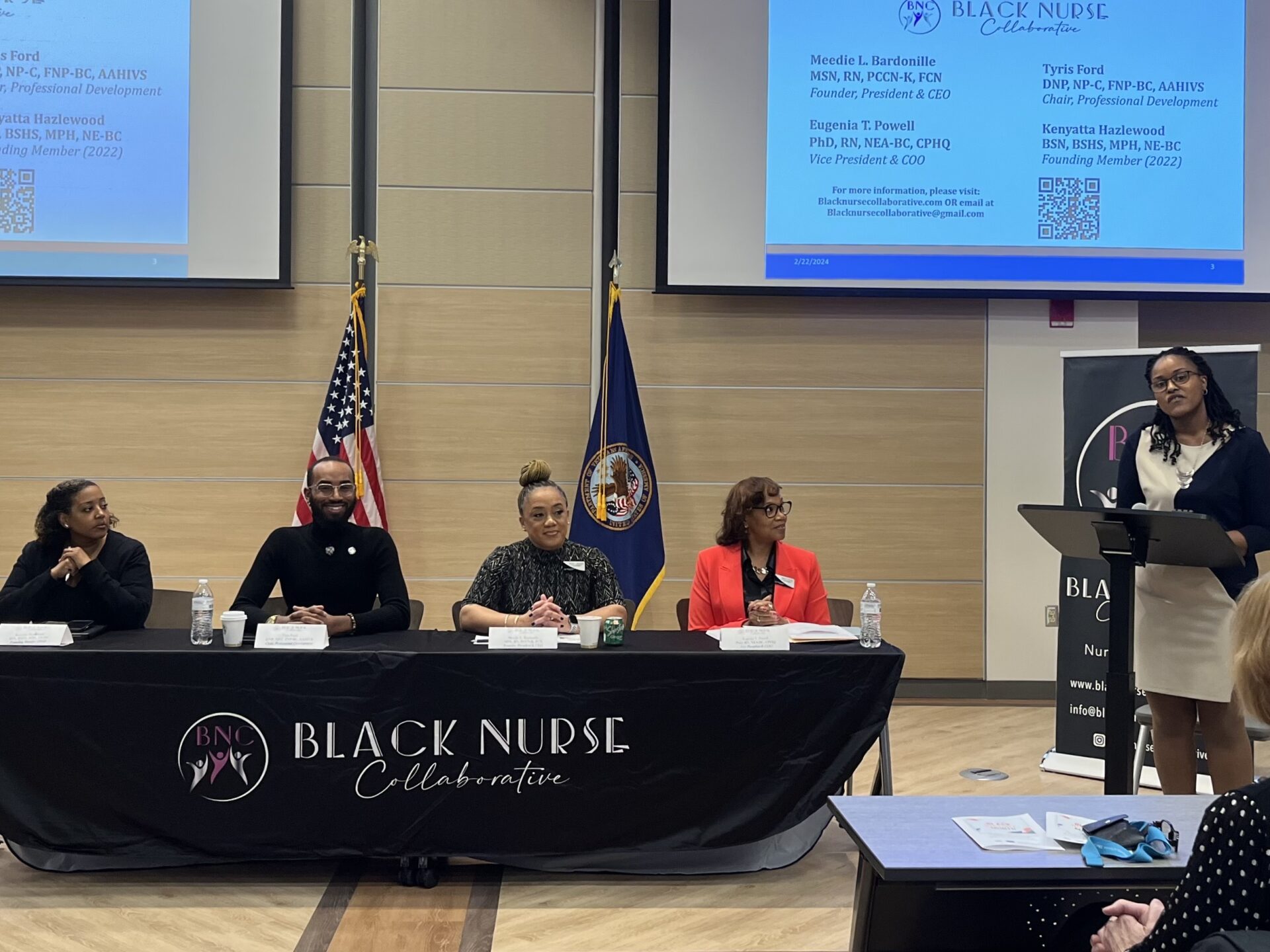West Virginians face an above-average risk of death from strokes, heart disease and even injury.
This leaves Black residents especially vulnerable, because they already face disproportionate risks in the U.S. health care system.
But Black nurses are coming together to provide better care for patients and new opportunities for Black professionals.
On Thursday, members of the Black Nurse Collaborative (BNC) set aside their scrubs for a visit to the Martinsburg VA Medical Center.
The group, which is based in Bowie, Maryland, provides Black nurses identity-specific professional support. This week, they came to West Virginia to hold a panel on inclusion and racial inequity in their industry.
Speakers’ stories often overlapped. Many recalled patients and coworkers doubting their qualifications simply because of their race.
Nurses already face a power imbalance in health settings, because doctors have more authority over medical decisions.
Together, these biases and professional barriers can make it hard for Black nurses to speak up when they disagree with something.
For Meedie Bardonille, president and founder of the BNC, that is a problem.
She said when a patient has a health care provider that looks like them, “it’s clearly documented from numerous studies that health care outcomes are positively impacted.”
“Whether you’re a male nurse caring for another male patient, whether you’re a Black nurse caring for another Black patient,” Bardonille said.
West Virginia is predominantly white. This means that Black nurses and patients are less likely to encounter people who share their racial and cultural experiences, both of which shape health care outcomes.
In West Virginia, medical officials are looking to make a change. Chief of Staff Ngozi Efobi said the Martinsburg VA is recruiting nurses from all different backgrounds, including historically Black colleges and universities (HBCUs).
“I don’t know that historically an attempt has been made to meet them where they are,” Efobi said. “So we’re being very intentional about working with our fellow hospitals and universities, especially HBCUs, to just let them know that we’re here and that we’re interested.”
Through this, Efobi said the hospital center is making sure “we have a diverse population to take care of our diverse veteran population.”
Still, working in predominantly white places like West Virginia comes with challenges.
According to Bardonille, that is where professional support groups like the BNC come in. They help ensure Black nurses find resources and community, regardless of where they live, she said.
“You’re able to learn and hear from those individuals and experiences that can have a direct impact on your career,” Bardonille said. “More importantly, also the community that you’re seeking to serve.”
For Bardonille, providing culturally competent care means forging community with others who share your experience, and helping educate individuals who do not.
“You have to create your own table, bring your own chair and actually create the menu as well,” she said.
